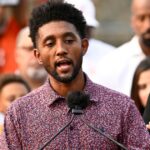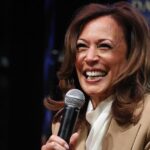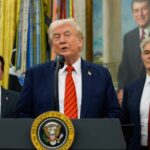
A Roman Catholic leader in Nicaragua has been arrested for speaking out against the government of President Daniel Ortega.
Bishop Rolando Álvarez and serval other priests were arrested Friday after Nicaraguan authorities had accused them of “organizing violent groups” and inciting them “to carry out acts of hate against the population,” according to Associated Press reports published by PBS.
Alvarez was placed under house arrest at his parents’ home in Managua, according to The Washington Post. Five priests and two seminarians arrested with him at the bishop’s residence in Matagalpa were imprisoned in El Chipote.
The government did not say what charges any face.
We demand the freedom of Bishop Rolando Álvarez and the other priests and laity kidnapped today in Nicaragua. Who shall separate us from the love of Christ? Tribulation, or anguish, or persecution, or famine, or nakedness, or peril, or sword? Rom 8, 35ff. pic.twitter.com/SPSEizEYEN
— American Patriots (@AvellanJmmy) August 20, 2022
The bishop’s residence had been surrounded by troops for the past two weeks.
“For several days a positive communication from the Matagalpa diocese was awaited with a lot of patience, prudence and sense of responsibility, that never materialized,” a National Police statement said, according to PBS. “With the continuation of the destabilizing and provocative activities, the aforementioned public order operation became necessary.”
The National Police said the goal of the arrests was to allow “the citizenry and families of Matagalpa to recover normalcy.”
Is this the kind of government socialists support?
Yes: 99% (172 Votes)
No: 1% (1 Votes)
Álvarez has opposed Ortega’s regime since 2018.
Dear liberal Catholics,
Spare me your shock concerning current events in Nicaragua.
Just because since the 1980s you hypocrites have considered Daniel Ortega a saint doesn’t mean he isn’t what he’s always been…a leftist thug.
— NubesPluantIustum (@pluant) August 20, 2022
“We hope there would be a series of electoral reforms, structural changes to the electoral authority — free, just and transparent elections, international observation without conditions,” Álvarez said. “Effectively the democratization of the country.”
Manuel Orozco, of the Inter-American Dialogue, said Álvarez was both a symbolic and substantive threat to Ortega.
“Nicaraguans are very loyal to the church,” he said. “In a survey I did last year, 70 percent of Nicaraguans say that to them, the political opinion of the religious authority at the national or the parochial level was important in shaping their political views.”
“(Álvarez’s) narrative, it’s based on the religious script, the biblical script about opposing the oppressor,” Orozco said. “And he makes allusions not to incite violence or to call for resistance, but he does say there is oppression.”
I condemn the kidnapping of my brother Bishop Rolando Alvarez by Nicaragua’s dictatorship. I’m close to him with my affection & prayers. He’s a light that shines in the darkness, which the darkness will not be able to extinguish (Jn 1:5). He & those who are w/him must be freed! https://t.co/kFh28A9Yin
— Carmelite Quotes (@carmelitequotes) August 12, 2022
Orozco said because no major response from outside nations is expected, Ortega and his allies “continue to push the envelope because they don’t see that short of a military invasion, there is not going to be anything that can stop them.”
In March, Nicaragua expelled the Vatican’s top diplomat in Nicaragua.






